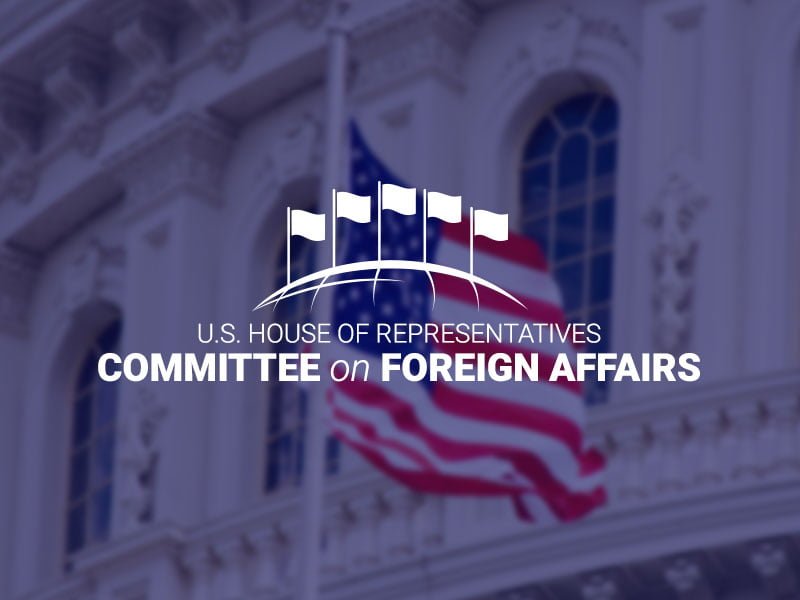On May 1, the Foreign Affairs Committee of the U.S. House of Representatives held a hearing on ways to counter Russia’s growing aggression against its neighbors. Moscow’s occupation of two Georgian provinces – Abkhazia and Tskhinvali Region/South Ossetia was among the discussed topics.
The hearing featured three speakers – Victoria Nuland, Former Assistant Secretary of State for European and Eurasian Affairs; Daniel Fried, Former Assistant Secretary of State for European and Eurasian Affairs; and General Jack Keane (Rep.), Former Vice Chief of Staff of the U.S. Army.
Congressman Eliot Engel (Dem.), chair of the Foreign Affairs Committee, mentioned Georgia in his opening statement. “If you look at a map of the world, you won’t find too many places that Russia isn’t stirring up trouble; on its own borders, Russia’s illegal occupation of Georgia and Ukraine has shattered decades of work to build peace and stability in Europe,” Engel said in his remarks.
The issue of Russian occupation was also raised by Congresswoman Ann Wagner (Rep.) in the Q&A session. She said the Kremlin is using “a strategy of creeping annexation to quietly seize more and more Georgian sovereign territories,” and inquired into General Keane’s views on how to deal with the problem.
Responding the question, General Keane said the United States has “begun to take some steps” to assist the country, including by providing anti-tank weapons in 2018. He also said the two countries conducted “some critical military exercises” on the tenth anniversary of Russia’s invasion.
“We are not ignoring them certainly and I also think what we need to do is encourage our European allies to be as involved as we have begun to be in Georgia,” he added.
Victoria Nuland spoke on the issue as well, saying successive U.S. administrations have “worked hard” to help the leaders of Georgia, Moldova and Ukraine implement democratic reforms, as well as “push back against Russian militarization of parts of those countries.”
“The question now is, even absent those parts of those countries that are occupied or under foreign influence, whether the rest of the country – whether its Georgia, Moldova or Ukraine – are meeting the highest standards that we demand of NATO members; our goal now should be to work with each of them to make clear that it is not about the pieces of territory that they have lost, it is about whether they are clean enough, strong enough, democratic enough to be in our family,” she stated.
Asked about Moscow’s intentions in the region, Daniel Fried said “Russia seeks to prevent all of its immediate neighbors – Georgia and Ukraine – from becoming successful modern democracies drawing closer to Europe.” “They manufacture conflicts, they create border problems, they seize territory,” he added, calling for more U.S. involvement in helping “reformers in those countries.”
Georgia was also referred to in Daniel Fried’s written testimony submitted for the hearing. “Russia’s invasion of its neighbor, Georgia, in August 2008 was a warning, one the United States did not fully heed. It was not until Russia’s invasion of Ukraine in 2014, including its attempted annexation of Ukraine’s Crimea territory, that the United States and NATO reexamined their security assumptions,” it reads.
This post is also available in: ქართული (Georgian) Русский (Russian)

